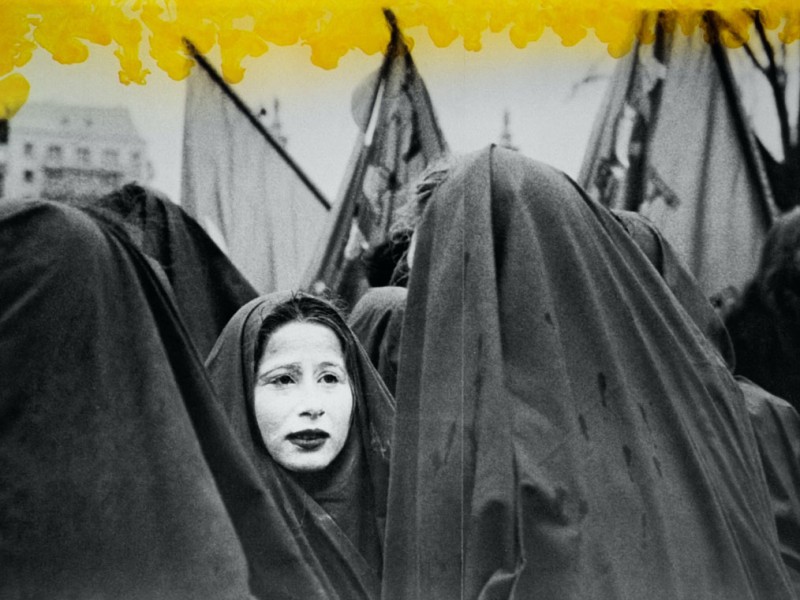Humanity has a brutal track record. When we’re not warring with each other, we’re warring with the planet, filling its oceans, air, and soil with plastics and toxins. The lands richest with natural bounty have had it the worst. Throughout her recent history, Zimbabwe has suffered from man’s brutality as much as any: her people colonised and subjected by the British South Africa Company in 1890 and exploited for diamonds and labor, then, when she obtained self-governance, she was crippled by western sanctions and her leadership mind-poisoned by corrupt capitalists. Now, her native soil is constantly stripmined for rare-earth metals and covered with miles and miles of “recyclables” discarded by new and former colonisers.
Brutalized Language, Moffat Takadiwa’s second solo exhibition with Nicodim, casts light on the violence inherent to globalisation that remains largely invisible to the west. He dissects the language of western art history into the visual vocabulary and feel of his own people. What seem at first like quilted abstractions rely on well-known cornerstones of western figuration. Elements of Picasso’s Guernica are broken down and reimagined within the two large-scale pieces that anchor the installation, the vocabulary of Picasso’s anti-war masterpiece repurposed and recycled to depict the carnage of environmental massacres and cultural white washing in Zimbabwe.
Human Brutality resembles the hanging carcass of one of Picasso’s beasts, or perhaps the central figure Francis Bacon’s Three studies of a crucifixion, whose subject was used as impetus for most manifest destiny-type rationales for colonisation. The ears and eyes of Guernica’s bull are also evident within Re-Reading Korekore, for which Takadiwa disassembled a dictionary of the Shona language into squares and affixed them to the top of English keyboard keys, reasserting the will of his people above those who have sought to erase and minimise it. Three Reflections pieces are crafted to resemble cheap Chinese novelty mirrors that often wind up in the dumps outside Harare, forcing the viewer to reflect on their own indemnity in all of the above.
Takadiwa has long sought to use his art as a community platform, building a sustainable microeconomy around the sourcing of materials and production of his labor-intensive tapestries, as well as providing studio space and instruction to local youth via his Mbare Art Project. Last year, during protests against the government, an angry mob attacked the studio. Brutalized Language is Takadiwa’s meditation on human reason in the face of our more feral impulses. We are human animals, a very special breed.
For more visit: nicodimgallery.com
Related Features
-
89
-
-
-

